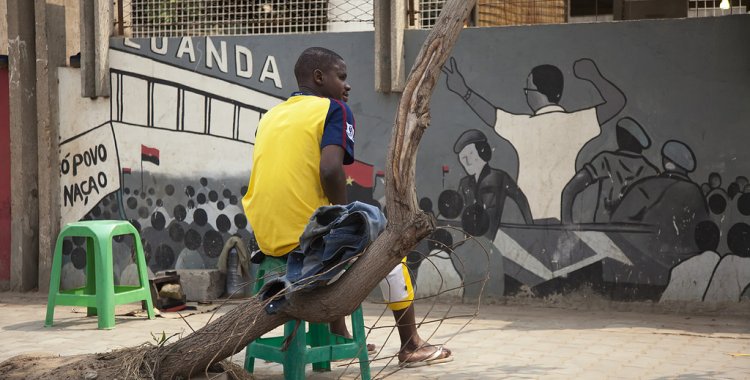In the meeting with civil society, academic representatives, businessmen, journalists, young people, sociologists and churches intervened, focusing on the difficulties that Angola faces and which were aggravated by the effects of the new coronavirus.
Economist Laurinda Hoygaard admitted that the executive's measures may not have the desired effects and considered that only the diversification of the economy can replace oil as an economic support, being the country's industrialization “vital”.
Laurinda Hoygaard said that in the situation of public calamity that the country is experiencing, all means must be called "so that the difficulties do not worsen and urged the recovery of capital taken to other countries, calling on citizens and companies to replace them and provide services. accounts.
The economist admitted that Angola may be forced to renegotiate its foreign debt and called for more social justice, "a guiding element for a dynamic and transparent economy".
Fernanda Azevedo, representing the Federation of Women Entrepreneurs of Angola, which has more than 3000 members of associations and cooperatives in the 18 provinces, stressed that more than 50 percent of these women went to the informal market due to lack of systematization and organization goods and services markets.
For this reason, he pointed out that this should be a priority in trade, in addition to a program of “Angolanization of the sector” and the maximization of logistics centers.
Fernanda Azevedo also pointed out the “disastrous consequences” of the failure to pay tuition fees in private education, arguing that credit lines with subsidized interest should also be created.
The topic was taken up by Filipe Vau, of the Association of Private Higher Education Institutions of Angola (AIESPA), who asked for direct State intervention to mitigate the “devastating impact” on the sector, aggravated by the biosafety requirements that create additional difficulties to do against costs.
Filipe Vau regretted the absence of financing policies and warned of the risk of unemployment of a “significant labor force”, which corresponded to more than 10,000 teachers across the country in 2018, half of which in Luanda.
The AIESPA representative criticized, on the other hand, the regulated price regime that should not be applied in higher education because it conditions its financial autonomy and impedes the competitiveness of institutions.
Ramiro Barreiro, of the Association of Hotels and Resorts of Angola (AHRA), asked the executive to “be particularly sensitive to the problems” of tourism, a sector “very important in this gear”, which employs more than 200 thousand people and the most suffered by pandemic effects.
In addition to an “aggressive visa granting policy”, the head of AHRA, defended the opening to charter flights, the urgent creation of the tourism fund and the resumption of interregional flights, among other measures.
The journalist Teixeira Cândido, who represented the class at the meeting with João Lourenço, addressed the imminence of dismissals in the face of the difficult situation that the private media are experiencing, due to the lack of advertising revenue, and indicated that the purchase of advertising was one of the ways institutional framework that has been adopted in other countries.
The journalist also complained about compliance with “a law that has existed for 30 years” that provides for the granting of incentives to the media and has never been applied.
Another of the proposals he presented was the possibility of a credit line for the acquisition of printers by journalists' cooperatives.
He also defended a “reflection on the financing model of public agencies”, which could evolve towards the creation of a tax, giving as an example the case of England and the BBC.
On the other hand, he criticized the self-regulation mechanisms of the class that have been put in place, pointing out the Portfolio and Ethics Commission, which “does not work”.
"We have to get used to living with the virus," said Paulo de Carvalho, by Angolan sociologists, anticipating, however, some problems in returning to classes and stressing that the role of the teacher will also have to change the habits and customs.
The reverend Deolinda Teca, of the Council of Christian Churches in Angola, asked for the reinforcement of assistance to families in need, with basic food baskets and values adjusted to the economic reality, creation of food banks, valuing health professionals, betting on the fight against the exodus rural development and creation of an employment subsidy and microcredit.
Tingão Mateus, of the National Youth Council, underlined that youth development was deeply affected by the economic crisis and even more by the pandemic, giving as an example, the informal market, "severely impaired due to mandatory confinement with a strong impact also on young people".







